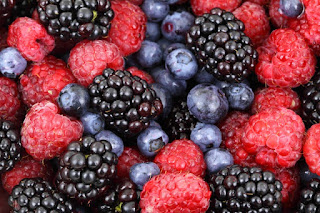The Health Benefits of Eating Fruits and Vegetables: A Comprehensive Overview
Fruits and vegetables are foundational components of a healthy diet. Packed with essential vitamins, minerals, fiber, and antioxidants, they provide numerous benefits that contribute to overall health and well-being. Regular consumption of a variety of fruits and vegetables has been linked to the prevention and management of many chronic diseases, improved digestion, and enhanced mental health. This article explores the myriad health benefits of eating fruits and vegetables and why they should be a staple in everyone’s diet.
1. Rich Source of Essential Nutrients
Fruits and vegetables are natural powerhouses of vital nutrients. They provide vitamins such as A, C, E, and K, as well as B-complex vitamins like folate, which are crucial for energy metabolism and red blood cell formation. Minerals like potassium, magnesium, and calcium found in fruits and vegetables support healthy blood pressure, bone health, and muscle function. These nutrients are important for maintaining the body’s basic functions and overall vitality.
2. High in Dietary Fiber
One of the standout benefits of fruits and vegetables is their high fiber content. Fiber aids in digestion by promoting regular bowel movements and preventing constipation. It also supports a healthy gut microbiome by feeding beneficial bacteria. Additionally, fiber helps regulate blood sugar levels by slowing the absorption of sugar into the bloodstream and contributes to feelings of fullness, which can help control appetite and support weight management.
3. Antioxidant and Anti-inflammatory Properties
Many fruits and vegetables are rich in antioxidants—compounds that neutralize harmful free radicals in the body. Free radicals can cause oxidative stress, leading to cell damage and increasing the risk of chronic diseases such as cancer, heart disease, and neurodegenerative disorders. Antioxidants like flavonoids, carotenoids, and vitamin C help reduce inflammation and protect cells from damage, promoting long-term health and longevity.
4. Reduced Risk of Chronic Diseases
Numerous studies have shown that diets rich in fruits and vegetables are linked to a lower risk of many chronic diseases. For instance, high intake of these foods is associated with a reduced risk of cardiovascular disease due to their ability to improve cholesterol levels, lower blood pressure, and reduce inflammation. They are also protective against certain cancers, especially those of the digestive tract, due to their fiber and antioxidant content. Moreover, fruits and vegetables support healthy weight, which is a major factor in preventing type 2 diabetes.
5. Support for Healthy Skin and Vision
Certain fruits and vegetables contain nutrients that are especially beneficial for skin and eye health. For example, carrots, sweet potatoes, and spinach are rich in beta-carotene, which the body converts into vitamin A, essential for good vision and skin repair. Vitamin C, abundant in citrus fruits and bell peppers, aids collagen production, helping maintain skin elasticity and wound healing. The antioxidants in these foods also protect the skin from damage caused by UV rays and environmental pollutants.
6. Boosts Immune Function
The immune system benefits significantly from the vitamins, minerals, and phytochemicals found in fruits and vegetables. Vitamin C, zinc, and other micronutrients help enhance immune responses, enabling the body to fight off infections more effectively. A diet rich in diverse fruits and vegetables ensures that the immune system has the resources it needs to stay strong and responsive throughout the year.
7. Mental Health Benefits
Emerging research indicates that fruit and vegetable intake is linked to better mental health and cognitive function. Nutrients such as folate, antioxidants, and magnesium found in these foods support brain health by reducing inflammation and oxidative stress, improving mood, and enhancing memory and focus. Diets high in fruits and vegetables have been associated with a lower risk of depression and cognitive decline.
8. Hydration and Detoxification
Many fruits and vegetables have high water content, which helps maintain hydration and supports the body’s natural detoxification processes. Proper hydration is essential for kidney function, toxin elimination, and maintaining healthy skin. Water-rich produce like cucumbers, watermelon, and oranges contribute significantly to daily fluid intake.
Conclusion
Incorporating a variety of fruits and vegetables into your daily diet is one of the simplest and most effective ways to improve your overall health. Their rich nutrient profiles, fiber content, and disease-fighting properties make them indispensable for maintaining a strong immune system, preventing chronic diseases, supporting digestive health, and enhancing mental well-being. For optimal benefits, aim to fill half your plate with fruits and vegetables of different colors and types each day. By doing so, you not only nourish your body but also cultivate lifelong habits that promote health, vitality, and longevity.






